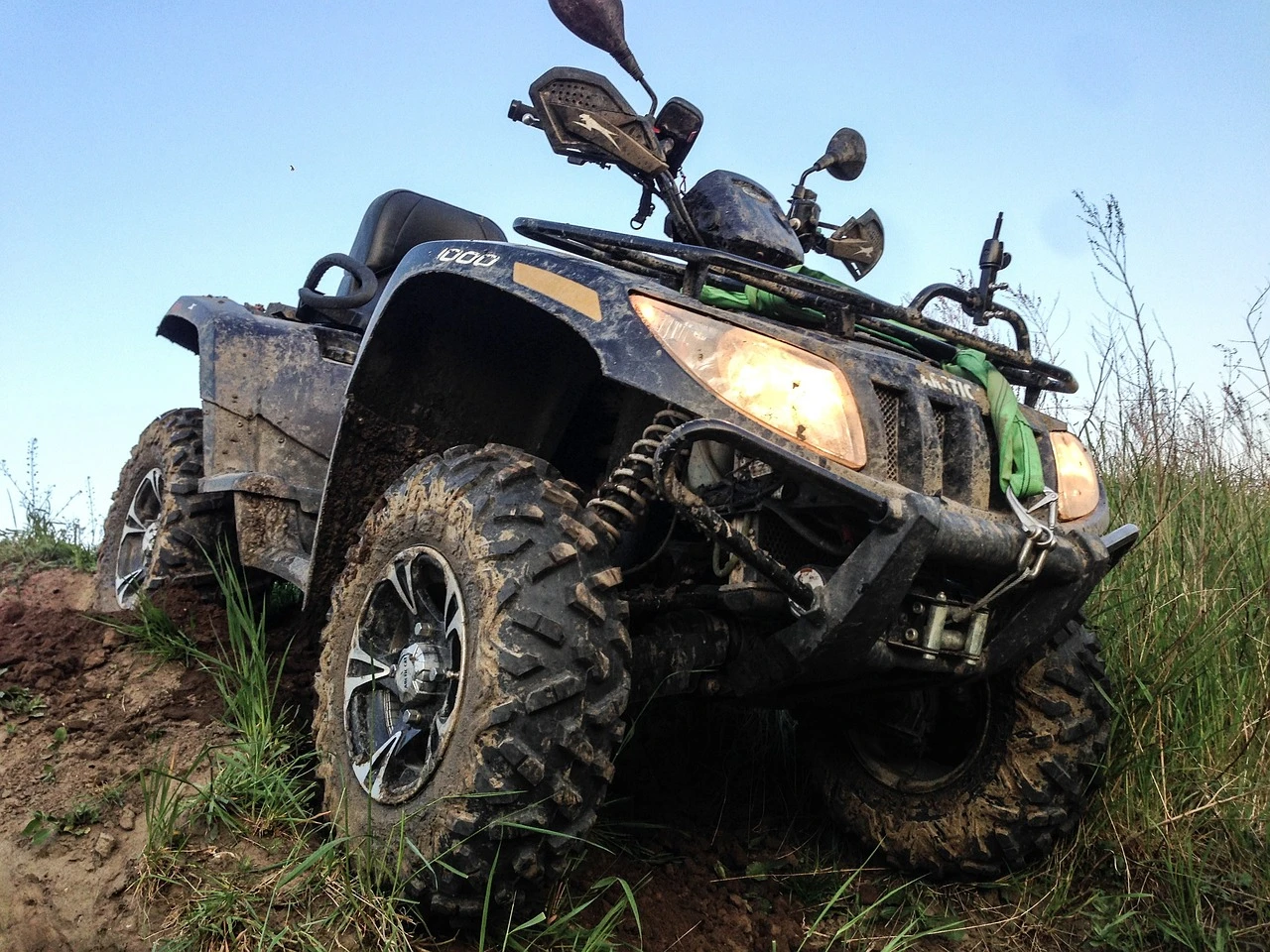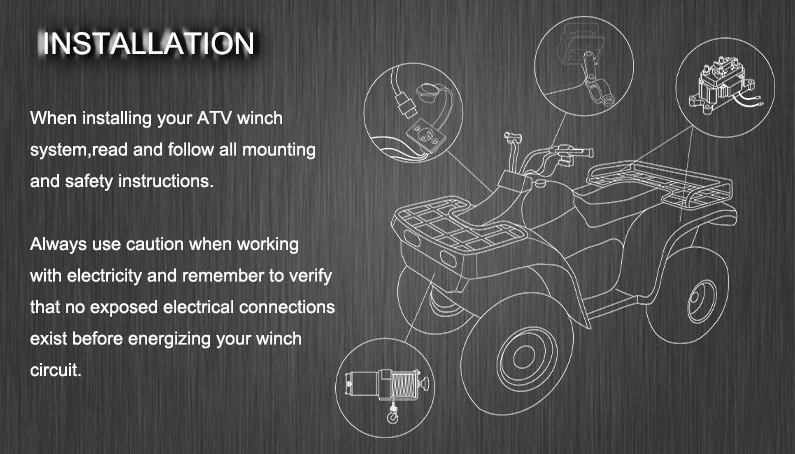- All
- Product Name
- Product Keyword
- Product Model
- Product Summary
- Product Description
- Multi Field Search
Views: 74 Author: Site Editor Publish Time: 2023-10-17 Origin: Site











What is an ATV?
ATV stands for All-Terrain Vehicle, which is a small vehicle suitable for various terrains. It usually has four large wheels, a powerful engine, and a sturdy chassis that can drive over rough terrain, muddy roads, and even snow. ATVs are widely used in agriculture, military, adventure, sports and leisure fields.
The design and functionality of an ATV make it a versatile vehicle. It can easily traverse forests, mountains, rivers and lakes, allowing users to reach places that other vehicles cannot. ATVs can also carry a certain number of items, such as crops, tools, hunting equipment or camping supplies. Therefore, ATV has a wide range of applications in agriculture, pasture management, and outdoor activities.

However, there are situations where an ATV may encounter difficulties, such as getting stuck in mud, getting stuck under rocks or trees, or needing to haul heavy items. In these situations, a portable electric winch can be very useful. A portable electric winch can be installed on the front and rear sections of the ATV to pull the vehicle out of difficult-to-reach areas via a rope or steel cable. It can provide enough traction and power to overcome obstacles that the ATV itself cannot handle.
The benefits of using a portable electric winch are its portability and ease of installation. ATV users can carry and use the winch as often as they need without requiring permanent modifications or installation to the vehicle. This allows for quick problem solving when needed, increasing the ATV's practicality and flexibility.
When talking about the maintenance of portable atv electric winch, we cannot ignore its importance. This critical task not only extends the life of your equipment but also ensures it operates properly during critical moments. The portable ATV electric winch is a powerful tool commonly used in towing, stretching and rescue tasks.
However, if regular maintenance and upkeep is not carried out, it may malfunction when it is needed most, causing us unnecessary trouble and distress. Therefore, it is crucial for every user to understand the importance of maintenance of portable atv electric winch and how to perform maintenance correctly.
As a leading portable atv electric winch manufacturer, we will introduce to you how to maintain the portable atv electric winch in this article.
1. Power supply problem: The winch does not start or operate properly.
Solution: Check whether the power connection is correct and make sure the power cord is not damaged or has poor contact. If using battery power, make sure the battery is fully charged.
2. Loading problem: The winch cannot bear the required load or is overloaded.
Solution: Check whether the rated load of the winch can meet the working requirements and ensure that its maximum load capacity is not exceeded. If the load is too heavy, you need to reduce the load or choose a winch with a larger load capacity.
3. Rope problems: The winch rope is knotted, broken or poorly wound.
Solution: Regularly check the condition of the rope to make sure it is not damaged or worn. When using rope, keep the rope evenly rolled to avoid knots or poor winding. If damaged or worn, replace the rope promptly.
4. Operational problems: Not familiar with the correct operation method of the winch. Solution: Read the winch instruction manual carefully to learn the correct operating steps and safety precautions. Before use, perform a test run of the winch and become familiar with the functions of each control switch and button.
5. Temperature issues: The winch may overheat due to long hours of operation. Solution: Avoid using the winch uninterrupted for long periods of time to avoid overheating. If the winch overheats, stop using it and wait for it to cool. When used in high temperature environments, consider using a radiator or fan to reduce the temperature of the winch.
6. Maintenance issues: Lack of maintenance and upkeep can lead to reduced winch performance or failure.
Solution: Clean your winch regularly, especially key components such as ropes and pulleys. Lubricate the moving parts of the winch, such as gears and bearings. Regularly check whether the wires, switches and other parts of the winch are normal, and repair or replace them in time if there are any problems.
1. Cleaning: Clean the winch regularly, especially after use to remove dust, mud and other dirt. Use a soft brush or damp cloth to clean, avoiding excessive moisture contact with electrical components.
2. Check the cables: Check that the cables are intact and replace them immediately if there are any fraying, cracks or exposed copper wires.
3. Check the power cord: Check that the power cord is intact and replace it immediately if there are any fraying, cracked or exposed wires.
4. Lubrication: Regularly lubricate the moving parts of the winch, including rollers, bearings and gears. Use an appropriate lubricant and lubricate according to manufacturer's recommendations.
5. Check switches and controls: Check that switches and controls are working properly, making sure all buttons and switches move freely and that there are no damaged or loose connections.
6. Check the winch rope: Check whether the winch rope is intact and replace it immediately if there are any wear, cracks or strong ties.
7. Check the motor regularly: Check whether the motor is running normally and whether there is any abnormal noise or vibration. If any problem is found, please contact professional maintenance personnel for maintenance.
8. Storage: When the winch is not in use, please store it in a dry, clean place away from direct sunlight and rain.

Things to note:
When maintaining and inspecting the winch, be sure to disconnect the power supply and turn the winch off to ensure safety.
Ensure the correct tools and equipment are used for maintenance and inspection and avoid using damaged tools.
If you are unfamiliar with winch repair and inspection, consult a professional or contact the manufacturer for more information and guidance.